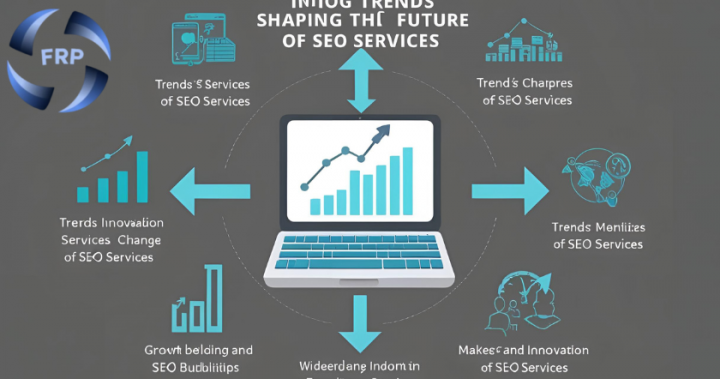In the ever-evolving landscape of digital marketing, Search Engine Optimization (SEO) has emerged as a cornerstone of online success. With businesses increasingly vying for consumer attention online, having a well-optimized website is no longer a luxury—it’s a necessity. SEO services encompass a range of strategies and techniques designed to improve a website's visibility on search engines like Google, Bing, and Yahoo. This article explores the world of SEO services, diving deep into their importance, components, and best practices.
1. Understanding SEO Services
SEO services refer to the professional techniques used to enhance a website's ranking on search engine results pages (SERPs). These services are typically offered by digital marketing agencies or specialized SEO companies. The primary goal is to attract more organic (non-paid) traffic to a website by improving its search engine rankings.
SEO services can be broadly categorized into the following types:
On-Page SEO: Focuses on optimizing individual web pages to rank higher and earn more relevant traffic.
Off-Page SEO: Involves actions taken outside of your own website to impact your rankings within search engine results.
Technical SEO: Concentrates on website and server optimizations that help search engine spiders crawl and index your site more effectively.
Local SEO: Aimed at optimizing a business for location-based searches, particularly important for brick-and-mortar businesses.
E-commerce SEO: Tailored for online stores to help their product pages rank better in search results.
2. The Importance of SEO Services
The importance of SEO services cannot be overstated. Here are several reasons why businesses invest in SEO:
Increased Visibility and Rankings: Higher rankings mean greater visibility and the likelihood of attracting clicks.
Targeted Traffic: SEO targets users who are actively searching for your products or services.
Cost-Effectiveness: Compared to paid advertising, SEO provides a high return on investment (ROI) over time.
Improved User Experience: Good SEO practices enhance website usability and performance.
Brand Credibility and Trust: Websites that appear higher in search results are often perceived as more trustworthy.
3. Core Components of SEO Services
A comprehensive SEO service offering typically includes the following components:
Website Audit and Analysis: A thorough analysis to assess current SEO status and identify areas for improvement.
Keyword Research: Finding and targeting the right keywords that potential customers use to find your services or products.
Content Creation and Optimization: Developing high-quality, relevant content that addresses user intent.
On-Page Optimization: Including meta tags, headers, URL structure, and internal linking strategies.
Link Building: Acquiring high-quality backlinks to improve domain authority and search rankings.
Technical SEO: Enhancing site speed, mobile-friendliness, XML sitemaps, and secure connections (HTTPS).
Local SEO Optimization: Optimizing for Google My Business and local directories.
Analytics and Reporting: Regular reporting and analysis to measure success and refine strategies.
4. Choosing the Right SEO Service Provider
With numerous providers in the market, selecting the right SEO company can be daunting. Consider the following when making a choice:
Experience and Track Record: Look for agencies with a proven track record in your industry.
Customized Strategies: Avoid one-size-fits-all solutions; your SEO strategy should be tailored to your unique needs.
Transparency and Communication: Choose a provider that maintains clear communication and transparency.
Ethical Practices: Ensure the agency follows white-hat SEO practices to avoid penalties.
5. SEO Services for Different Business Types
SEO is not a one-size-fits-all solution. Different types of businesses require different strategies:
Small Businesses: Benefit from local SEO, Google My Business optimization, and citation building.
E-commerce Sites: Require product page optimization, schema markup, and strong technical SEO.
B2B Companies: Focus on lead generation, content marketing, and industry-specific keywords.
Enterprises: Need scalable solutions, cross-department collaboration, and advanced analytics.
6. Trends Shaping the Future of SEO Services
SEO continues to evolve, influenced by changes in technology and user behavior. Here are some key trends:
Voice Search Optimization: With the rise of digital assistants, optimizing for conversational queries is essential.
AI and Machine Learning: Tools like Google’s RankBrain use AI to determine search rankings.
Mobile-First Indexing: Google primarily uses the mobile version of content for indexing and ranking.
Video SEO: Increasing importance of video content, particularly on platforms like YouTube.
Core Web Vitals: Google emphasizes user experience metrics such as loading speed and interactivity.
7. Measuring SEO Success
To determine the effectiveness of SEO services, businesses should track specific metrics:
Organic Traffic: Number of visitors coming from search engines.
Keyword Rankings: Position of targeted keywords in SERPs.
Bounce Rate: Percentage of visitors who leave the site after viewing only one page.
Conversion Rate: Percentage of visitors who take a desired action.
Domain Authority: A metric that predicts how well a website will rank.
8. Common SEO Challenges
Despite its benefits, SEO can be complex and presents several challenges:
Constant Algorithm Updates: Search engines frequently change their algorithms.
High Competition: Standing out in a saturated market is difficult.
Technical Barriers: Poor site structure and coding can hinder SEO.
Content Quality: Producing unique and engaging content consistently is challenging.
9. DIY vs. Professional SEO Services
Some businesses consider handling SEO in-house, but there are trade-offs:
DIY SEO: Cost-effective but time-consuming and requires expertise.
Professional Services: Offer expert knowledge, efficiency, and comprehensive strategies.
10. Conclusion
SEO services play a pivotal role in the digital success of modern businesses. Whether you are a small local shop or a large enterprise, investing in a well-rounded SEO strategy can lead to increased visibility, more traffic, and higher conversions. As the digital landscape continues to shift, staying informed and adaptable is key to maintaining a competitive edge.